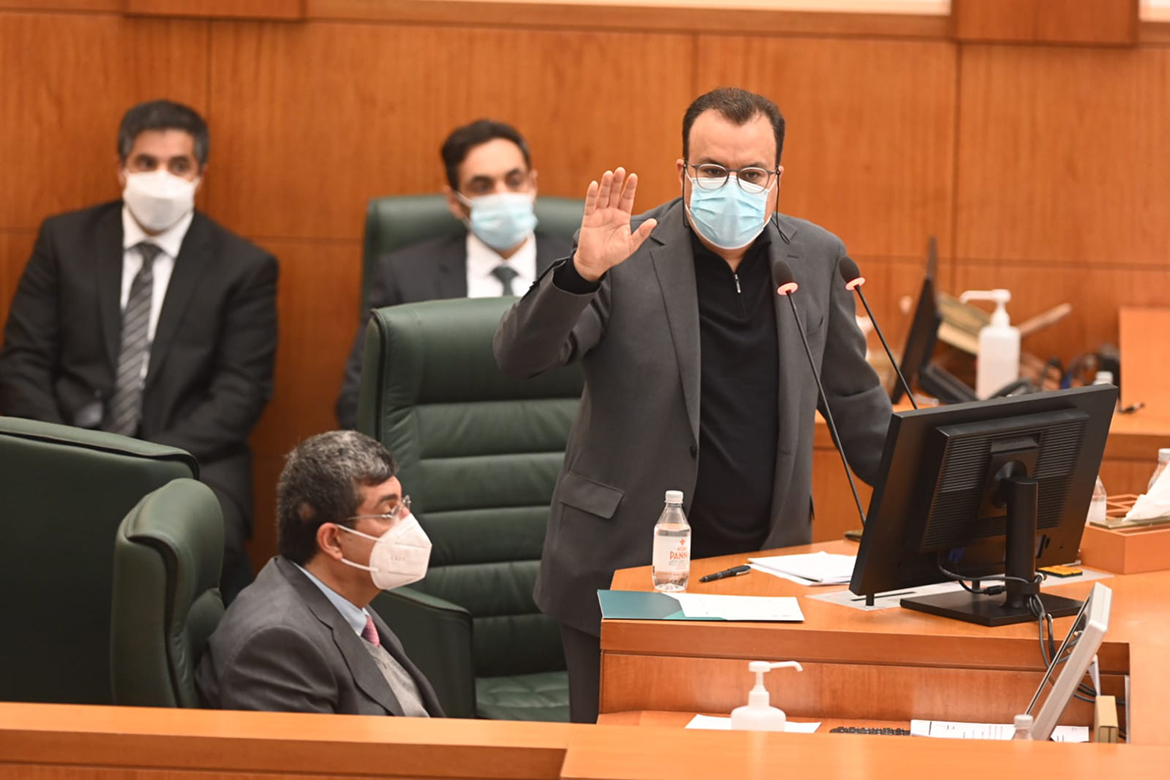By B Izzak
KUWAIT: Expatriates aged over 60 without a university degree will have to pay KD 500 in annual health insurance to go with the KD 250 annual fee for the renewal of their work permits, the Insurance Regulatory Unit said yesterday. The insurance charges were set following meetings by the Insurance Regulatory Unit, which groups insurance companies, with the Public Authority for Manpower, the agency that regulates the affairs of foreign workers in the private sector, the unit said.
The insurance policy will cover the medical treatment of insured residents at private hospitals and clinics for a maximum amount of KD 10,000 per year, KD 8,000 of which is for coverage at hospitals. The insured residents are fully covered for treatment at hospitals, which includes hospital stays, cost of doctors’ consultations, surgeries and radiology services. The policy covers the treatment of chronic diseases.
The policy allocates KD 1,500 annually for treatment at outpatient clinics including medicines – at a maximum of KD 300 per year, medical examinations, one-day surgeries and others. The policy also allocates KD 500 for primary dental treatment that includes fillings, lab tests, drugs and gum treatment. According to the policy, treatment at hospitals is fully covered, but patients are required to pay 10 percent for each doctor’s visit, diagnostic tests and medicines at outpatient clinics, along with 10 percent for dental treatment.
Meanwhile, MPs yesterday called on the health authorities to ease coronavirus restrictions including lifting restrictions on unvaccinated people and replace it with a PCR test to enter facilities. They also demanded to stop asking citizens to undergo PCR tests while returning from abroad. The calls came during a special debate called by lawmakers on the measures taken during the coronavirus pandemic and its harmful impact on the country.
Assembly Speaker Marzouq Al-Ghanem sent warm greetings to the health minister, medical staff and the former health minister for their great efforts in fighting the pandemic. He denied allegations that the pandemic has been exploited for political purposes in the Assembly, adding the pandemic should not be misused to destroy education, health or the economy.
MP Abdullah Al-Mudhaf wondered why people who have received two doses of the vaccine are being treated like unvaccinated people, adding that restricting the freedom of people is a criminal act. MP Hamad Al-Matar said more freedom must be given to unvaccinated people and complained that limited-income people cannot pay the heavy cost of institutional quarantine for their maids or other workers. MP Osama Al-Munawer said that the health ministry says 85 percent of the people had been vaccinated, and accordingly “we should stop forcing people to get vaccinated”.
Health Minister Khaled Al-Saeed said the PCR test is available for free at the ministry and its cost has been reduced substantially, but it is very important and necessary. The minister said Kuwait is looking to return to normal life but all are required to comply with health conditions, emphasizing the need for vaccination. He added that it’s time to amend all decisions issued with relation to the pandemic, “but we have to remain cautious”.
The minister also said the continuity of the pandemic requires that we live with it. He said during the pandemic, 1,000 doctors, 250 technicians and 2,000 nursing staff were added to the medical body. The minister also announced that the financial rewards for frontline workers will be paid in the coming days. Public health specialist Mohammad Al-Saeedan stressed that coronavirus measures are regularly assessed and reviewed, adding that precautions against unvaccinated people are in place because they can spread the virus more than vaccinated people.











